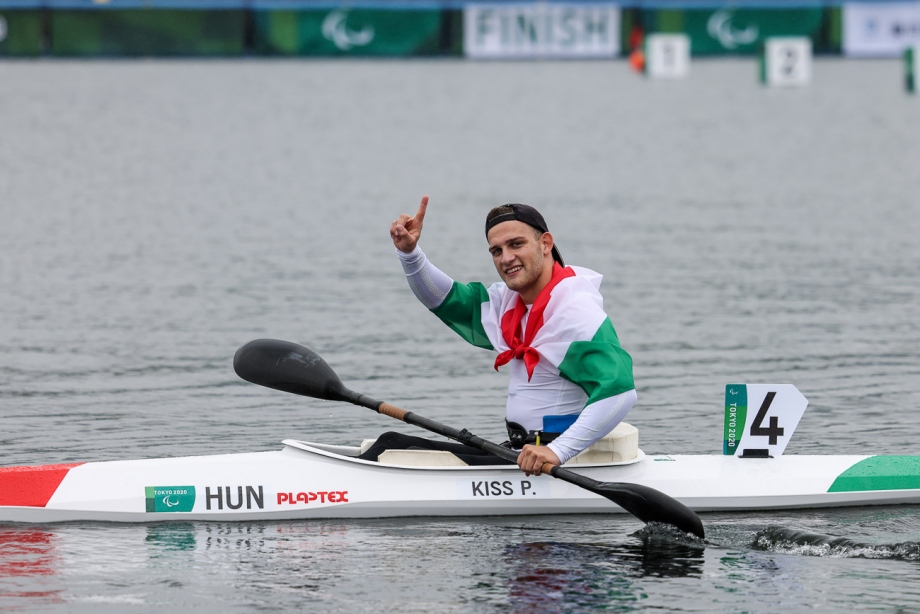Peter Kiss hardly slept the night before his biggest sporting moment in his life so far, so excited was he to finally get the chance to show the world what he could do.
For a third of his life he had been waiting patiently, but mostly impatiently, to race his paracanoe at the Paralympics. He was only just a teenager when he watched on television the sport making its Paralympic debut in Rio, and the next five years seemed to stretch on forever.
From the age of 15 it seemed Paralympic gold was Peter Kiss’s destiny. He quickly became the fastest KL1 male paddler in Hungary, then the fastest in Europe, and then, finally, the fastest in the world.
So in 2020 he was ready to take that final step and win Paralympic gold. But then that dream was taken away, a frustrated teenager had to find ways to bide his time. He spent a lot of that picturing how his Paralympic debut, if it ever happened, might look.
On Thursday night he imagined the whole day one last time.
“I didn’t really sleep last night, I was excited,” the 18-year-old said.
“I tried to put my race together in my head. I didn’t dream about it, but I’ve seen everything in advance, what will happen and how I would perform.”
Asked if the day turned out as he imagined, his answer was emphatic.
“Definitely.”
So that day saw the Hungarian become the youngest ever athlete and the first teenager to win a paracanoe Paralympic gold medal. Kiss did not reveal if he imagined winning as emphatically as he did on Friday, streeting the world-class field by almost three seconds.
Pre-Games talk focussed on whether an 18-year-old could handle the pressure of being favourite at their first Paralympics. Kiss hardly noticed.
“Everybody wants to beat the favourite, and I didn’t want to sleep on anything,” Kiss said.
“I had to do my best, I just heard I improved the record for my race by about three seconds, so that feels really great.
“This is such a wonderful feeling, to be here and having won almost every competition in the past three years. I’m pretty satisfied that I have managed to achieve so much at such a young age. Obviously there is much more to come, but I really feel the work we have done has paid out.”
Kiss arrived in Tokyo inspired by the exploits of the Hungarian Olympic sprint team, and even more determined to prove himself as a valuable member of a sport that is almost a religion in Hungary.
“I am really thankful to the Hungarian Canoe Federation, because we have the same attention as the able-bodied athletes have in Hungary,” he said.
“The Hungarian athletes set the bar really high at the Olympics, so I’m really proud that I could come somewhere close to that.”
Pics by Dezso Vekassy





